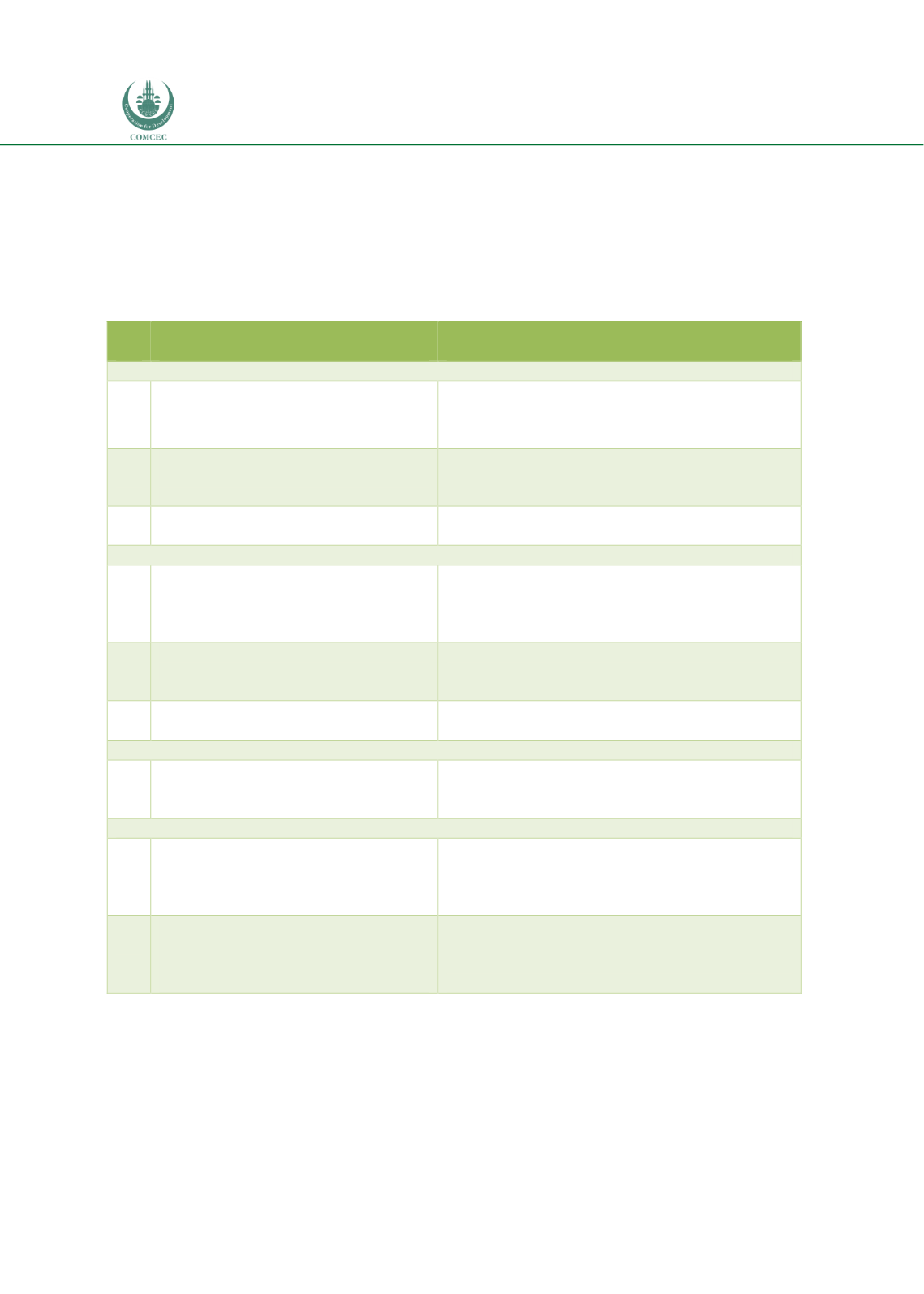

Infrastructure Financing through Islamic
Finance in the Islamic Countries
188
Although Chapter 5 identifies many recommendations at different levels, the key
recommendations and stakeholders who can implement them are identified in Table 6.1.
Other than the first recommendation in the table that calls for the coming up with of a pipeline
of innovative sustainable infrastructure projects, the recommendations are novel and focus on
developing innovative models of institutional and instrument levels that can enhance the role
of Islamic finance in developing the infrastructure sector.
Table 6. 1: Key Recommendations and Responsible Stakeholders
No.
Recommendations
Responsible Stakeholders
Key Recommendations for the Public Sector
1.
Identify a pipeline of innovative
sustainable projects that are essential
for long-term economic growth
Relevant government ministries or a specialized
public body
2.
Develop
standardized
Shariah
compliant contract templates for
infrastructure projects
Government agencies, regulators in collaboration
with Islamic Development Bank
3.
Establish
a
National
Islamic
Infrastructure Bank (NIIB)
Government establishes and provides the initial
equity
Key Recommendations for the Private Sector
4.
Change Islamic banking law to
establish
restricted
investment
accounts in Islamic banks that can be
used for longer-term investments
Relevant government ministry and bank
regulators
5.
Establishment of a Shariah-compliant
infrastructure fund
Government can form a GLC or NIIB as suggested
above that will drive the establishment and
operations of the fund
6.
Establish a GLC that can advise on the
structuring and issuance of sukuk
Government can form a GLC that will provide the
services
Key Recommendations for the Islamic Social Sector
7.
Develop innovative models of using
zakat and waqf for providing social
infrastructure services
Zakat institutions, waqf institutions, government
bodies
and
international
multilateral
organizations such as IDB and COMCEC
Key Recommendations for the International Stakeholders
8.
Establish International Islamic
Infrastructure Bank
Multilateral organizations and/or large private
sector entities can take the lead to initiate the
process and OIC member countries can provide
the initial capital for establishing IIIB.
9.
Build capacity and human capital for
implementing Islamic infrastructure
financing
Multilateral development organizations such as
IDB, COMCEC or the proposed IIIB can provide
the technical assistance for training professionals
of Islamic financial institutions.
















